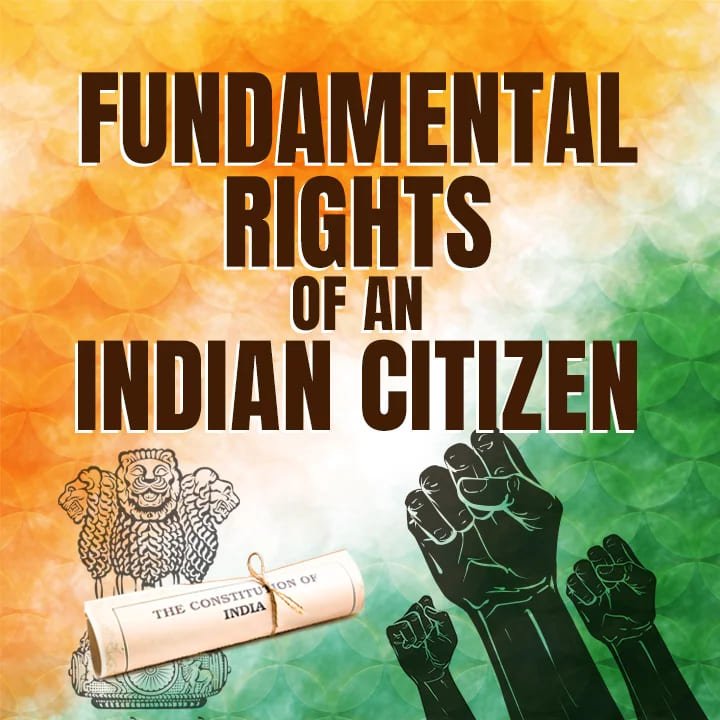The Constitution of India, a cornerstone of the nation’s governance, encompasses several salient features, prominently emphasising Fundamental Rights and Directive Principles of State Policy (DPSPs). Fundamental Rights, enshrined in Part III of the Constitution, guarantee essential freedoms and protections to citizens. These rights serve as safeguards against state intrusion and ensure the dignity and autonomy of individuals. Concurrently, Directive Principles of State Policy, outlined in Part IV of the Constitution, provide guidelines for the government’s policy-making and aim to establish social, economic, and political justice. While not enforceable by courts, these Principles serve as moral and ethical directives for governance. Together, these foundational elements of the Constitution strive to create a just, equitable, and inclusive society in India.
Fundamental Rights, as enshrined in the Indian Constitution, are essentially a set of rules or guarantees designed to ensure that every citizen is treated fairly and equally by the government. They represent the basic freedoms and protections that every individual in India is entitled to, regardless of their background or status. These rights serve as a safeguard against any potential abuse or discrimination by the authorities, aiming to uphold the dignity, liberty, and equality of all citizens. In essence, they form the cornerstone of our democratic framework, emphasising the principles of justice and inclusivity that underpin our society.
Part III under the Indian Constitution deals with fundamental rights. Interestingly, the right to remedy in case of an infringement of a fundamental right of an individual is also recognised in the same part. The Supreme Court, also known as the ‘guardian of the Indian Constitution’ is given the power to deal with cases of infringement of fundamental rights.
Let’s try and understand our fundamental rights, starting with article 14, that is Right to Equality.
Article 14: “The State shall not deny to any person equality before the law or the equal protection of the laws within the territory of India.”
Article 14 of the Indian Constitution stipulates that the right to equality extends to all persons, not just citizens. It guarantees equal treatment and protection under the law for everyone residing in India. While certain rights are exclusively reserved for citizens, we will explore them in detail as we delve deeper into Fundamental Rights. The Right to Equality, as delineated in Article 14, comprises two key aspects: equality before the law and equal protection of laws, both of which are integral to upholding justice and fairness in society.
“Equality before the law” as under article 14 is a foundational principle in any democratic society, representing a negative right that prevents the state from granting special treatment to any individual. It asserts that all individuals, regardless of their background or status, are equal in the eyes of the law and no one is above its reach.
As elucidated by Dr. Jennings, equality before the law means that similar cases should be treated alike, with no discrimination based on factors like race, religion, wealth, social status, or political influence. This principle ensures that the right to sue, be sued, prosecute, or be prosecuted for the same kind of action is uniformly applied to all citizens of full age and understanding.
In the state, every person, regardless of their occupation or social status, will be governed by the same laws. Whether someone owns a diamond factory or works as part of a cleaning staff, the laws apply equally to everyone. However, it’s important to note that this principle isn’t absolute. There are exceptions, such as the armed forces, which operate under their own set of military laws.
The aspect of “equal protection of laws” under article 14 simply means that everyone in similar circumstances should be treated equally under the law, receiving both the benefits and responsibilities imposed by the law without discrimination. This principle ensures that the law is applied uniformly to all individuals in identical situations, without any bias. It represents a positive right, placing an obligation on the state to prevent any violation of this Fundamental Right by actively ensuring fair treatment for all citizens.
This principle underscores the importance of treating individuals equally under the law when they are in similar circumstances. However, its significance goes beyond surface-level understanding. The key focus is on maintaining societal equality by ensuring that the law is not applied uniformly when circumstances differ. In essence, it advocates for the same treatment of individuals facing similar situations, while also highlighting the state’s responsibility to avoid applying the law in the same manner when circumstances vary. So, when circumstances are alike, the law should be applied equally, but when they differ, it’s the state’s duty to ensure fairness by not enforcing uniformity in legal application.
Under article 14, in order to ensure that there is no arbitrary action taken by the State, a test of reasonable classification is laid down. This test comprises of majorly two essentials:
(a) Intelligible differentia; and
(b) Rational nexus
In simple terms, the test of reasonable classification is used when the State has to work on the positive right of ensuring that different circumstances are not met with the similar application of laws. To justify the distinct application of a law, it must be demonstrated that there is a clear and discernible difference in circumstances for a specific group of people. Furthermore, the action taken, which involves the disparate application of the law, should be directly linked to the identified difference in circumstances. A crucial requirement is the existence of a nexus between the purpose of the law and the basis of classification. If there is no reasonable basis for classification, the legislature’s classification can be deemed discriminatory and invalidated.
Some quotes:
1. “A good constitution is the greatest legacy we can leave to our children.” – Dr. B.R. Ambedkar.
2. “The Indian Constitution is a mirror of the soul of the nation’s people.” – Rajendra Prasad, First President of India.
Sources:




